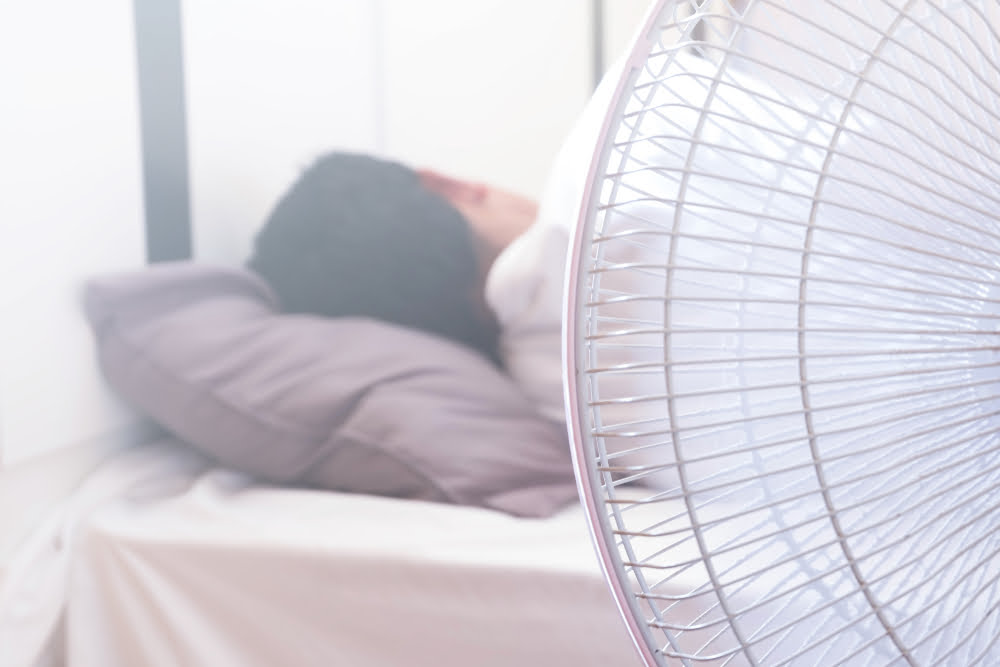
Sleeping with a fan on is a common practice, especially on hot summer nights. Despite the soothing noise and refreshing breeze, it’s best to avoid this habit for important reasons. We examined the potential negative impacts of using a fan at night:
Dry air and respiratory problems
The constant breath of a fan, all night, can dehydrate the skin and mucous membranes. This aggravates respiratory problems such as asthma or allergies by drying out the airways and irritating the sinuses.
Muscle and joint pain
Prolonged exposure to cool temperatures during the night can lead to constriction of muscles, especially in the neck and back. This muscle tension can make sleep uncomfortable and disrupt the quality of rest.
Skin and eye problems
Dry air from the ventilator can dry out the skin and worsen skin conditions such as eczema and psoriasis. In addition, if the fan is not properly maintained, it can spread dust and allergens, leading to eye irritation and problems for sensitive people.
Energy consumption and environmental impact
If you leave your fan on overnight, it will lead to an increase in your electricity bill and overconsumption of energy. On a large scale, this overconsumption can contribute to stress on energy resources and have an impact on the environment.
Even if using a fan during the night seems to be an ideal solution to be cool, it is essential to take into account these various consequences on our body. To promote restful and healthy sleep, it is best to opt for other means of refreshment:
- ventilation of the room in the evening when the temperature drops,
- the use of lightweight, breathable sheets…
Now you know why you shouldn’t sleep with your fan on. Prioritizing the above alternatives will help preserve your well-being and reduce your ecological footprint while enjoying a peaceful and restful sleep!





